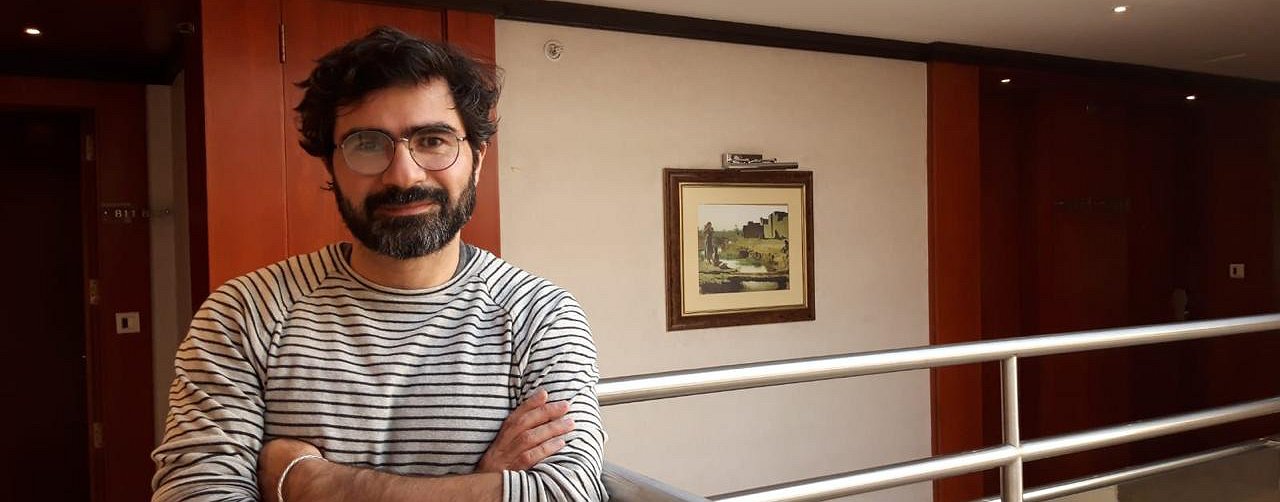In the second part of this series on mental and emotional health, Dr. Khaled Nasser explains how unrealistic expectations can lead journalists to feel powerless when their work fails to create change. This is not just due to journalists’ own expectations of themselves, but the false impressions from vulnerable members of society who often mistake journalists for saviours.
Many journalists in our part of the world are driven by their desire to fix problems and injustices of their communities. They want to change society for the better by informing people and pushing for reform in public institutions.
The “ideal” and “romantic” expectations that journalism should and can change the world create a huge psychological burden for journalists covering our region, which is full of trauma and injustices
They develop the self-perception of what I call: The Superwoman. Unfortunately, this ideal mission gets tested everyday by the painful realities of societies that resist change. Consequently, journalists experience disappointment, frustration and a sense of powerlessness. They blame themselves for not doing enough!
Journalists who work in the field are in constant contact with underprivileged communities, poor families and individuals needing help. These people may entrust the journalist to communicate their pain to the public and to authorities. They see the journalist as a saviour who will get their voices heard across the world and hopefully alleviate their suffering. In reality, however, the effect of publishing their stories seldom meets their expectations. Young journalists confronted with the reality of journalism’s limitations often feel guilty and frustrated. They blame themselves for failing the people who trusted them to help solve their problems.
These are common examples of the internal emotional conflicts that young journalists may face today. The “ideal” and “romantic” expectations that journalism should and can change the world create a huge psychological burden for journalists covering our region, which is full of trauma and injustices, and often resistant to social and political reforms.
So how can we avoid or reduce these feelings and this negative state of mind? An African proverb says: “If you wish to move mountains tomorrow, you must start by lifting stones today”.
First, I recommend that journalists set realistic and measurable satisfying goals. Each community or country has its own “Big History,” the one we read about in political analysis and history books. Journalists in our region often see social change from this perspective, whether it’s change of regimes, or political and economic powers. But there is also the “small history” which relates to the personal life of an individual, a family or group within this community. Journalists covering social issues ought to perceive their mission from this point of view. They are addressing individual rather than the socio-political realities. They need to set their expectations to serve the history of small individuals so that the goal is achievable.
Throughout your career, you may be able to impact the life of one person, or one family, or one case of corruption. Any one of those “small history” changes is a wonderful life achievement and a journalist should be satisfied and proud of what she has accomplished
Second, expect that a satisfying goal may be realised over the course of your career, or a long period of time. It should not be associated with each piece of work.
Throughout your career, you may be able to impact the life of one person, or one family, or one case of corruption. One investigation might be able to expose and address one case of injustice. Any one of those “small history” changes is a wonderful life achievement and a journalist should be satisfied and proud of what she has accomplished.
Third, journalists need to approach the impact of their work from an “accumulation of minimal effects” perspective.
So when we report or take pictures, we are not necessarily trying to change certain conditions now, but we hope that we can be part of a larger “information campaign” where a community of journalists, photojournalists and media outlets cooperate to inform audiences about certain issues. We hope that by contributing to such a campaign, we can play a role in urging the public to push for change.
Therefore, I advise members of The Marie Colvin Journalists’ Network to:
a) Appreciate their role in spreading information. Facts precede change!
b) Appreciate the collaborative nature of their work. Accumulation of knowledge requires the effort of several journalists.
c) Look for long-term rather than not short-term gains. Desired change is not measured by the number of “likes” on social media. Change takes time.
Finally, honesty is the best policy. When people turn to you for help, communicate honestly to manage their expectations. When you interview people, make sure they understand the limits of your capabilities so there are no false hopes.
Sometimes, journalists like to stay in contact with people they’ve interviewed for updates on their situations and to see how they are. Maintaining communication after the story has been published could be good for a while. Being a good listener for these people not only provides good emotional support for them, but it also helps prevent the journalist from blaming herself or feeling powerless when the report doesn't yield the desired impact.
